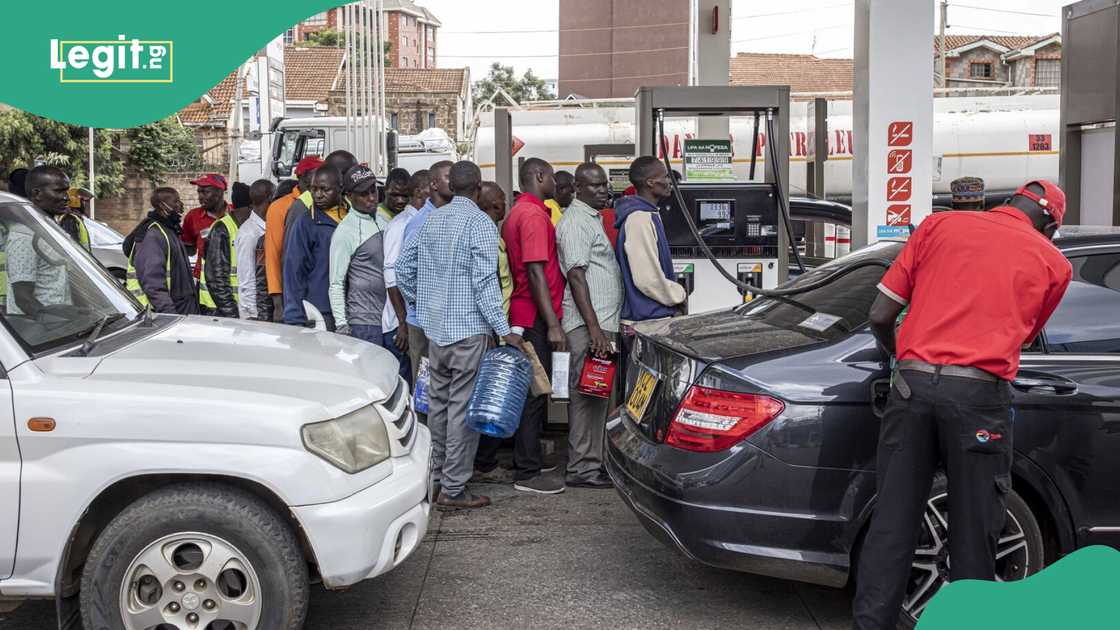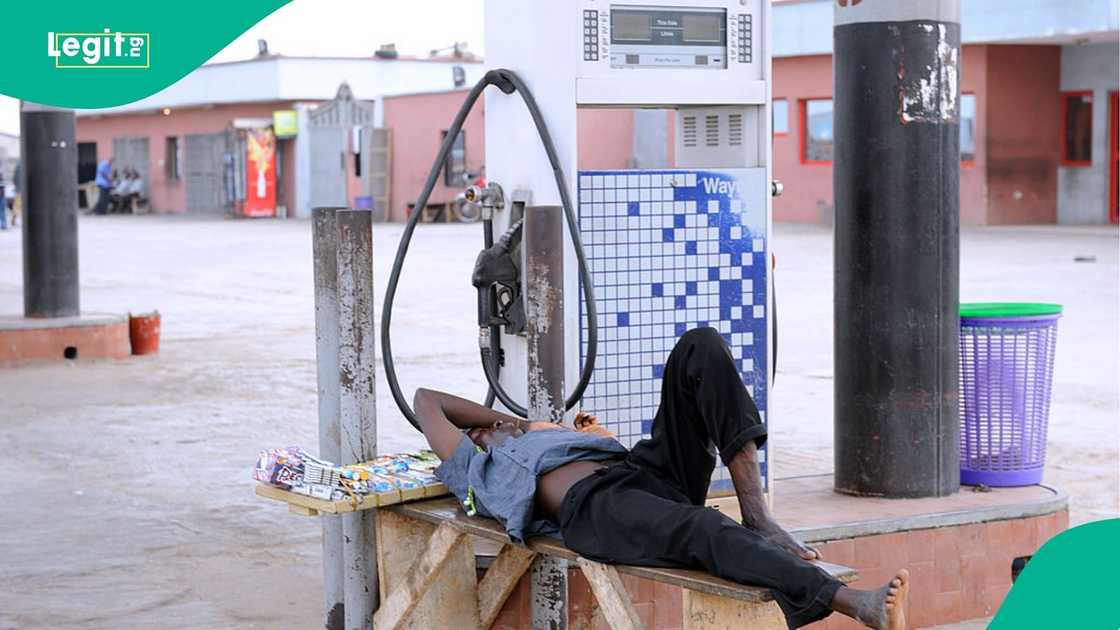As thousands of Nigerians wake up to shuttered filling stations and traffic jams stretching for kilometers, it’s clear the country is entering another energy crisis. Petrol prices in states such as Cross River, Lagos, and Delta have leapt to a historic N1,700 per litre, fuel supply chains have ground to a halt, and the ripple effects are being felt from urban commuters to rural traders. All of this results from an ongoing strike by the Nigerian Union of Petroleum and Natural Gas Workers (NUPENG), deepening anxieties over fuel affordability and economic stability across the nation.
Fuel Prices Soar: Daily Realities for Nigerians
With the industrial action escalating and bringing much of the downstream oil industry to a standstill, petrol scarcity is intensifying. Filling stations are locked and silent, with desperate motorists queuing at a handful of outlets hoping for a chance to refill, often to no avail. The Abuja-Kaduna expressway, usually bustling with commercial and private vehicles, now echoes with the frustration of stranded commuters and the relentless bargaining of black market fuel sellers.
In Calabar, Cross River State, the effects have been especially severe. Reports indicate that within hours of the strike’s commencement, pump prices soared, with some outlets charging double their usual rates. Local operators and commuters alike describe the situation as “unprecedented,” as transport fares in the city center now reflect the sharp jumps at the pump. Popular routes—such as Efio-Ete Junction, MCC, Parliamentary Road, and the ever-busy Murtala Muhammed Highway—are scenes of confusion, with drivers reporting that they’ve been forced to pay up to 10% more for fares, and sometimes cannot move their vehicles at all. Private and commercial vehicle owners told BusinessDay that the black market has become their only option, but prices there are even more punishing.
NUPENG Strike: Widespread Shutdowns Across the Country
NUPENG formally launched an indefinite strike action on Monday, September 8, 2025, effectively halting all petrol loading operations nationwide. The union’s order prompted swift compliance across states, where filling stations closed en masse in solidarity or fear of penalties—operators in Delta State, for instance, were warned by the Independent Petroleum Marketers Association of Nigeria (IPMAN) to close shop or face a N1 million fine for non-compliance. In Lagos, fuel trucks were blocked from entering essential depots at Dangote Refinery, Rainoil, and Integrated, leaving tankers idling with no product to load—a move that choked supply to the city’s filling stations and worsened the shortage.
Operations Paralysed at Depots Nationwide
The Crisis Unfolds: State-by-State Impact
- Warri: Petroleum Tanker Drivers (PTD) enforced the strike strictly, barring trucks from loading at depots and creating bottlenecks miles away.
- Calabar: Key facilities like Matrix and First Fortune depots went offline, trapping marketers and leaving retail outlets dry.
- Port Harcourt: Security was ramped up, with the Soroman and Evergreen depots sealed off. Tanker drivers were turned away or forced to wait, as loading was completely halted.
- Onitsha and Enugu: The petrol drought has spread east, as local stations run low and supply chains fracture. Motorists have started to panic buy, stockpiling fuel where possible.
- At Master’s Energy and TSL depots: The gates were manned day and night by striking drivers, making sure no truck moved in or out without union approval.
This systematic closure of depots, orchestrated by a tightly organized union network, has left fuel marketers and ordinary citizens anxious about how long supplies will last—and what happens if the strike drags on.
NUPENG vs Dangote Refinery: A Deepening Dispute
At the heart of the crisis lies a clash between NUPENG and management at Dangote Refinery. The union alleges that the refinery’s recent labor practices have undermined the rights of its members and excluded union representation in crucial decision-making. Specifically, union leaders have cited concerns over Dangote’s proposed importation of 10,000 Compressed Natural Gas (CNG) trucks—announced in June 2025—which are set to transform the way petrol and other fuel products are distributed nationwide.

Credit: Bloomberg/Contributor
Source: UGC
While the introduction of clean-energy CNG trucks may be celebrated for its innovation, unionists warn it could threaten thousands of jobs, erode labor protections, and freeze union members out of a rapidly changing distribution landscape. Affiliates like the National Association of Road Transport Owners (NARTO) have echoed these fears, calling for a renegotiation of working conditions and stakeholder roles within the new system.
According to a joint statement issued by NUPENG’s president Prince Williams Akporeha and general secretary Afolabi Olawale, “The strike will not end until our members’ legitimate concerns are resolved and fair labor practices are restored.”
Nationwide Economic Fallout and Public Response
With the transport sector at a virtual standstill, the cost of moving goods and people is ballooning across Nigeria. Economists warn that the strike could aggravate the current inflation crisis, amplifying the struggles of households that already spend a large proportion of their income on transport and logistics. Informal black-market trade in fuel has surged, sometimes doubling or tripling the price per litre in major cities.
For everyday Nigerians, the immediate implications are clear: longer queues, increased costs of transportation, uncertainty about fuel availability, and worries about how to stretch tight budgets. The situation has also provoked debate on radio shows and social media, where citizens, experts, and policymakers have offered a range of views. While some argue that unions are protecting vital worker rights in a volatile market, others call for modernizing and opening up Nigeria’s fuel distribution infrastructure to enhance efficiency and reduce opportunities for monopoly or collusion.
Local analyst Chinedu Okeke told NOWAHALAZONE, “A strike of this scale demonstrates the structural weaknesses in Nigeria’s downstream sector, particularly how dependent we remain on a handful of players for our energy security.”
The Way Forward: Solutions and Unresolved Challenges
All eyes are now on negotiations between the federal government, Dangote Group, NUPENG, and other major stakeholders. If talks do not yield a rapid breakthrough, there is a risk that petrol prices could climb even higher, deepening hardship for millions. Sector analysts recommend that stakeholders prioritize dialogue, transparency, and sessional reviews of labor rights to resolve the crisis.
Yet even if a temporary fix is found, the underlying issues—aging infrastructure, dominance of a few petrified players, chronic underinvestment, and inadequate labor consultation—will require collective action and systematic regulatory reforms.
For now, Nigerians are left to manage daily disruptions: rationing scarce petrol, adjusting travel plans, and hoping for relief in the near future. According to local commuter associations, urgent intervention by government authorities could make the difference between short-term inconvenience and a prolonged fuel emergency.
Depot and Refinery Pricing: A New Spike
Adding further strain, the ex-depot price for petrol at Dangote Refinery rose recently from N825 to N840 per litre, according to industry data published by PetroleumPriceNG and corroborated by local depot operators. Several other major depots have also reported price hikes in response to the supply crisis, fueling speculation that even higher retail prices are imminent.
Insiders note that talk of Dangote’s petrol production unit being “shut down”—whether permanent or temporary—has also fueled anxiety among marketers and the broader public, with some questioning whether the sector is entering a new normal of volatility or whether stabilization is possible through careful reform and inclusive dialogue.
As Nigerians, Ghanaians, and Africans across the region confront these developments, many are asking: How can the continent build a more resilient, worker-friendly, and consumer-focused energy system for the future?
Got news tips or your own business analysis to share? We’d love to hear from you! Email us at story@nowahalazone.com to have your story featured or for story sales.
For general support, reach out to support@nowahalazone.com.
Follow us for the latest updates and expert insights on Facebook, X (Twitter), and Instagram.










